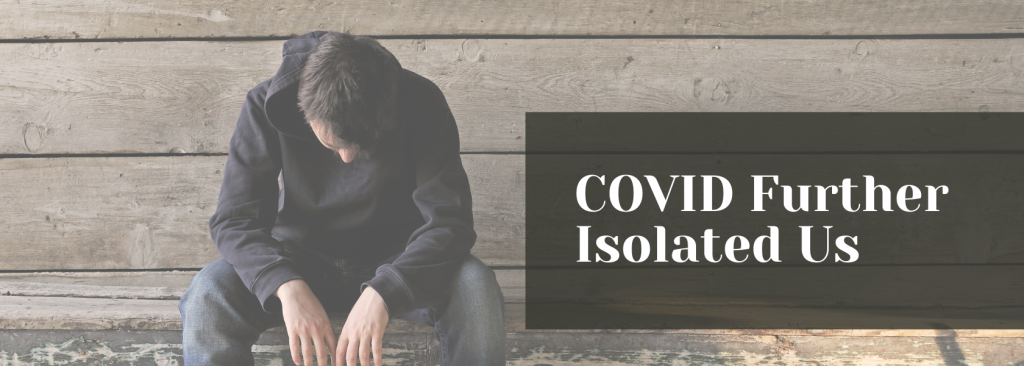How can we combat it?
Isolation seems to be a theme in society, and the upcoming holidays can make it feel even more rampant.
As a millennial, I grew up in a strange in-between era. I am old enough to have not had a smartphone at the ripe age of three, but I am nonetheless on my phone and online more than I would like to admit. Sometimes, I even joke that I am a ‘boomer’ because it saddens me how people seem to prioritize the attention of strangers online over their own friends and family, even if it is negative attention. This may simply be a re-packaged, “Back in my day, we drank from the hose” type sentiment, but the point still stands. Quarantine seems to have been the final nail in the coffin, and people now feel ‘weird’ engaging with others face-to-face, and more lonely and isolated than ever.
Existentialist Emmanuel Levinas comes to mind, who focused on how war and violence strip individuals of their identity. Social media can also lead people to betray themselves by playing roles and engaging in destructive actions. Levinas’ observation about this phenomenon is still relevant today, as communication through social media can easily distort and impersonalize others.
Simply put, we fixate on results instead of the processes; we perceive others as successful and complete and ourselves as stunted. Less face-to-face communication in favor of abstract engagement through a screen dehumanizes, which is where isolation can take a foothold.
As a new therapist, it shocked me how many clients express how they feel others are better than them, how making mistakes is unique to them, and how everyone but themselves ‘has it together.’ However, it usually shocks them when they quickly realize how inaccurate this mindset is, simply because they have never openly expressed it until they started counseling!
Being vulnerable and relying on others’ perceptions has fallen by the wayside. Online communication lacks crucial body language cues, hindering our ability to socialize effectively. Personally, I sometimes avoid eye contact and keep conversations shallow out of fear or distraction. Society partly influences this behavior, but we ultimately decide to act this way.
Social skills need practice, like exercising a muscle. It can be uncomfortable, but in-person interaction is better than online, even if it does not go ‘well.’ It is important to see others as real people with FLAWS, not as a one-dimensional entity on a screen. This whole post may be a long-winded, roundabout way of saying, “Put yourself out there,” but here is where we come in as therapists: we can experiment collaboratively without judgment and pinpoint what is holding you back!
We can beat isolation by engaging with others and taking the time to know them. This is as much for your benefit as theirs, arguably more, even if the conversation does not hit the mark you set. This is not to say that online communication is all bad; it has brought us closer in many ways. However, there is a happy medium. What could go wrong is holding you back from what could be.


